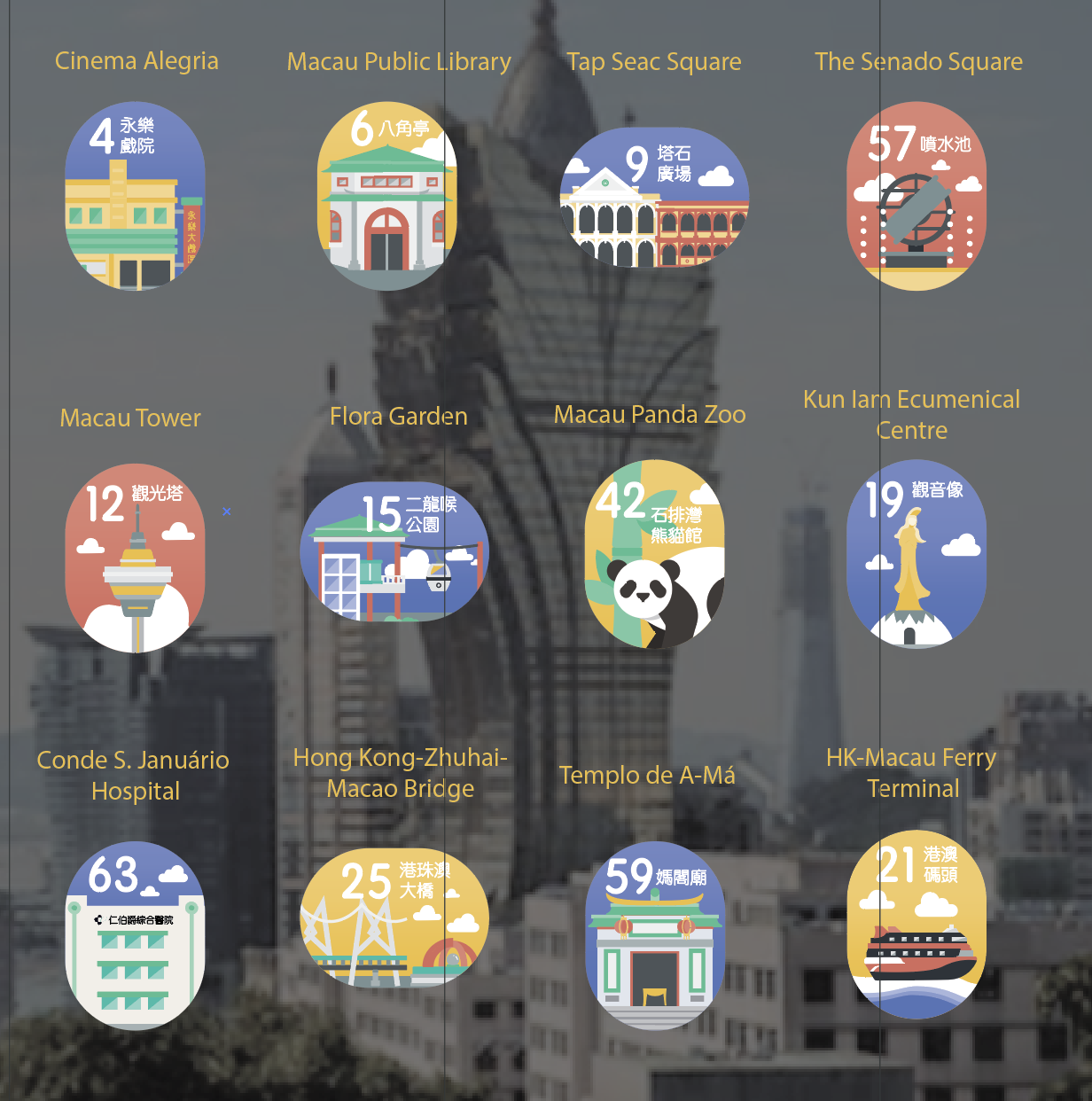Tong Lo
← Home
Boardgame for Dementia
2019
-> Healthcare and rehabilitation
-> Healthcare and rehabilitation
A playful board game to facilitate conversation and increase cognitive ability.
Collaborated with a social service organisation to create a board game for people living with dementia, visual and mobility impairments.
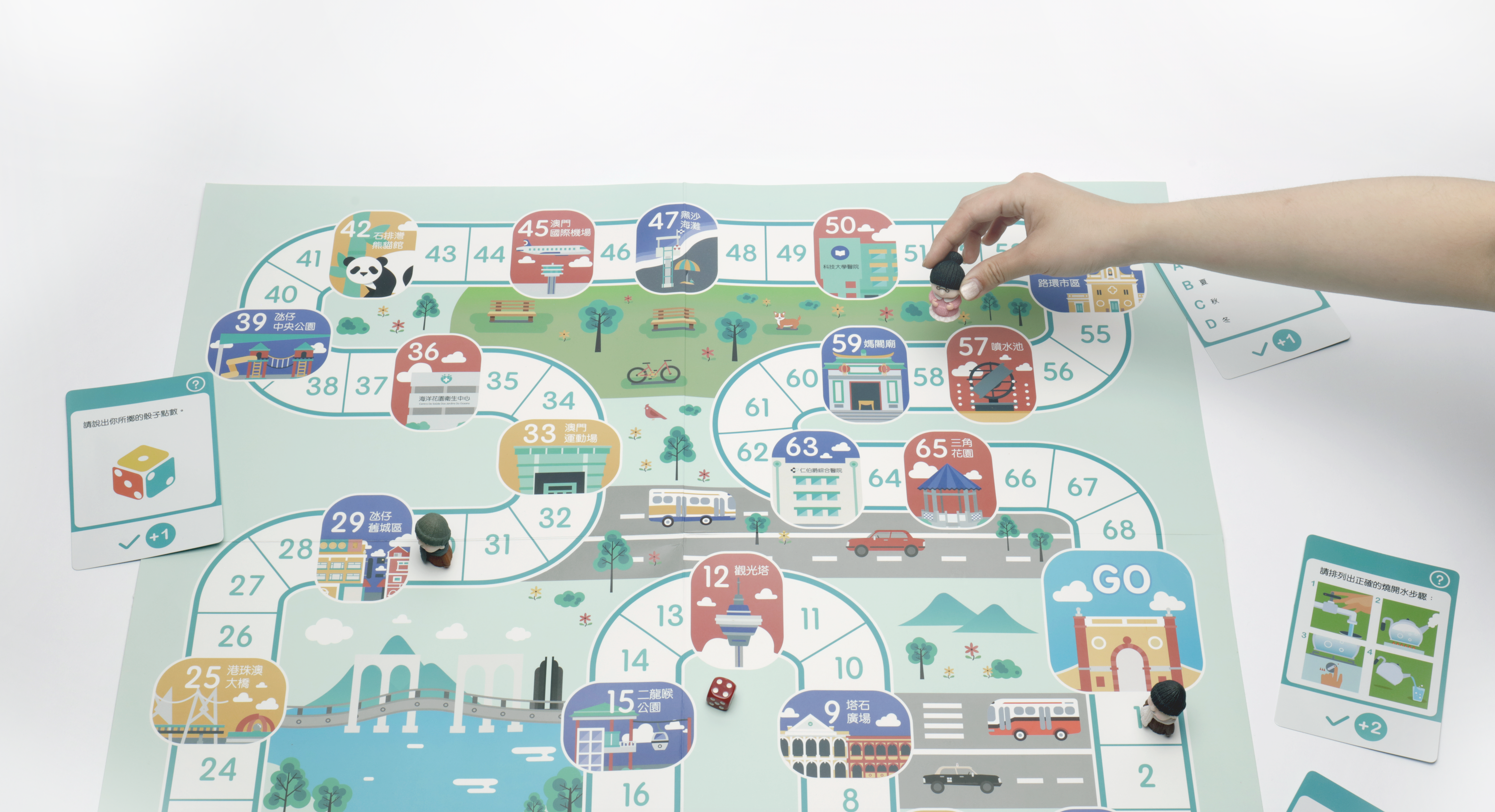
Overview
Dementia is the leading cause of disability and dependency among the elderly, which affects memory, thinking, behaviour and emotion. An elderly centre Caritas Macau felt the need for a board game that offers a greater connection to people’s daily lives as opposed to common store-bought games such as Monopoly and Snakes and Ladders. The project outcome is a game board that contains cultural and geographical references to Macau, as well as a set of game cards co-developed with therapists and caretakers.
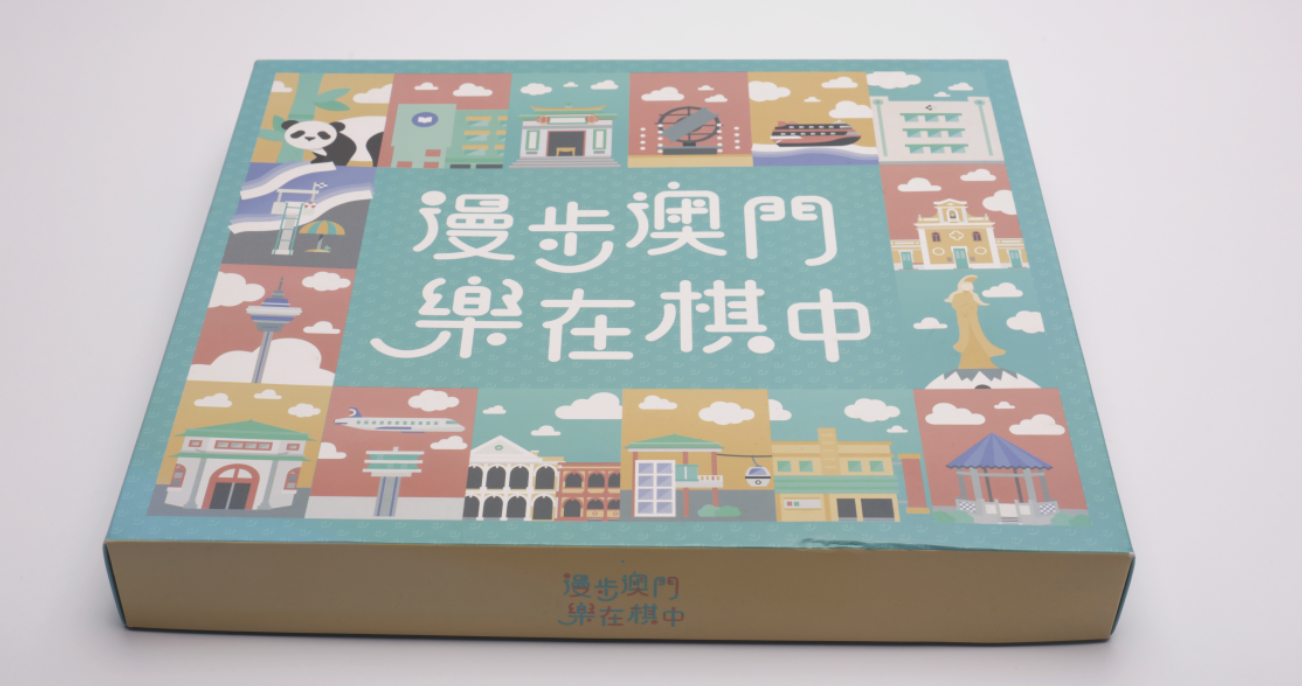


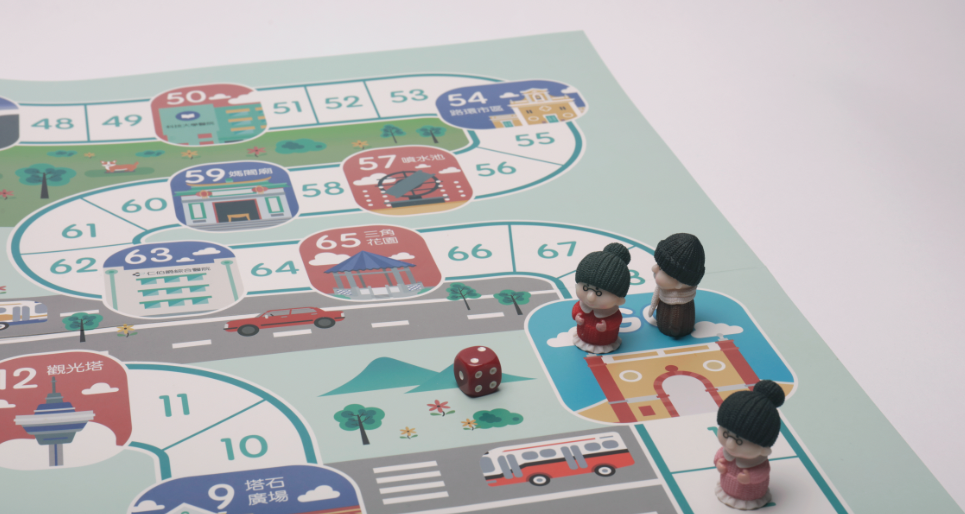
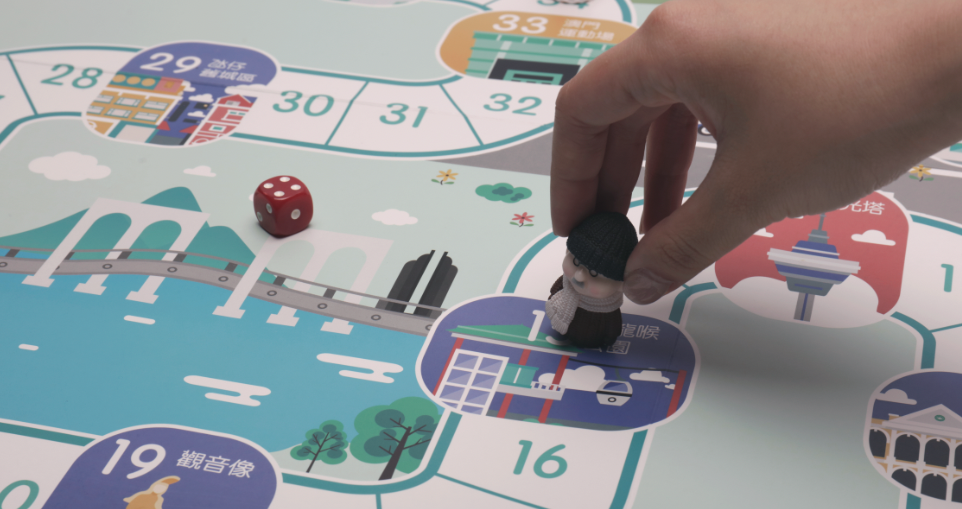

Someone in the world develops dementia every 3 seconds. Playing stimulating leisure games is considered as an effective way against dementia and cognitive decline for elderly people. Academic studies of the relationship between playing games and dementia confirmed that board game players have a 15% lower risk of developing dementia than non-players. The risk reduction is reported to be a long-term effect.
![]()
The vision of the boardgame is to provide:
![]()

The vision of the boardgame is to provide:

Gameboard
Some people who are living with dementia will experience difficulties with their sight and perception of their world, further fuelling the confusion and isolation they are already feeling.
We decided to use a vibrant colour palette to highlight and define elements with contrats to improve legibility while maintaining a playful tone of voice. The gameboard mimics the geographic layout of Macau city, featuring familiar locations and landscapes, while incorporating a Snakes and Ladders-style design affordance to enhance accessibility.
We decided to use a vibrant colour palette to highlight and define elements with contrats to improve legibility while maintaining a playful tone of voice. The gameboard mimics the geographic layout of Macau city, featuring familiar locations and landscapes, while incorporating a Snakes and Ladders-style design affordance to enhance accessibility.

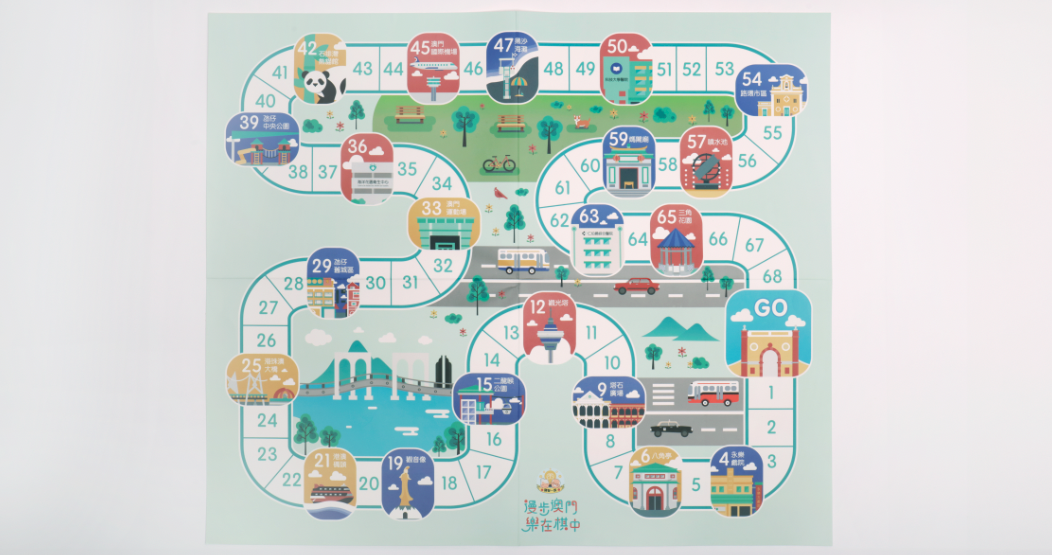

Gamecards
In collaboration with therapists, we identified 11 areas of stimulations the game can target:
![]()
In order to create a more relatable and personalised boardgame, the gamecards often contain cultural references, such as mentions of traditional chinese festivals and chinese food. Most questions describe daily activities, or problems that requires specific local knowledge and skills that are used on a daily basis to solve. Example of this include basic arithmetic equations and remarks on certain locations in Macau.
![]()
![]()
![]()

In order to create a more relatable and personalised boardgame, the gamecards often contain cultural references, such as mentions of traditional chinese festivals and chinese food. Most questions describe daily activities, or problems that requires specific local knowledge and skills that are used on a daily basis to solve. Example of this include basic arithmetic equations and remarks on certain locations in Macau.



Gameplay
We wanted the gameplay to reference people’s mental models of boardgames, so we have included dices and moving characters.
Throughout the game, the players will encounter Mission points where they will be prompted to draw a playing card. Each Mission point is represented by a key landmark in Macau.
A survey was conducted amongst the caregivers at the elderly centers in order to find out which locations we should include in the map to mirror the daily activities of the player. These Mission points are arranged in a way that mirrors the actual geographical position of the landmark on the map of Macau.
Throughout the game, the players will encounter Mission points where they will be prompted to draw a playing card. Each Mission point is represented by a key landmark in Macau.
A survey was conducted amongst the caregivers at the elderly centers in order to find out which locations we should include in the map to mirror the daily activities of the player. These Mission points are arranged in a way that mirrors the actual geographical position of the landmark on the map of Macau.
